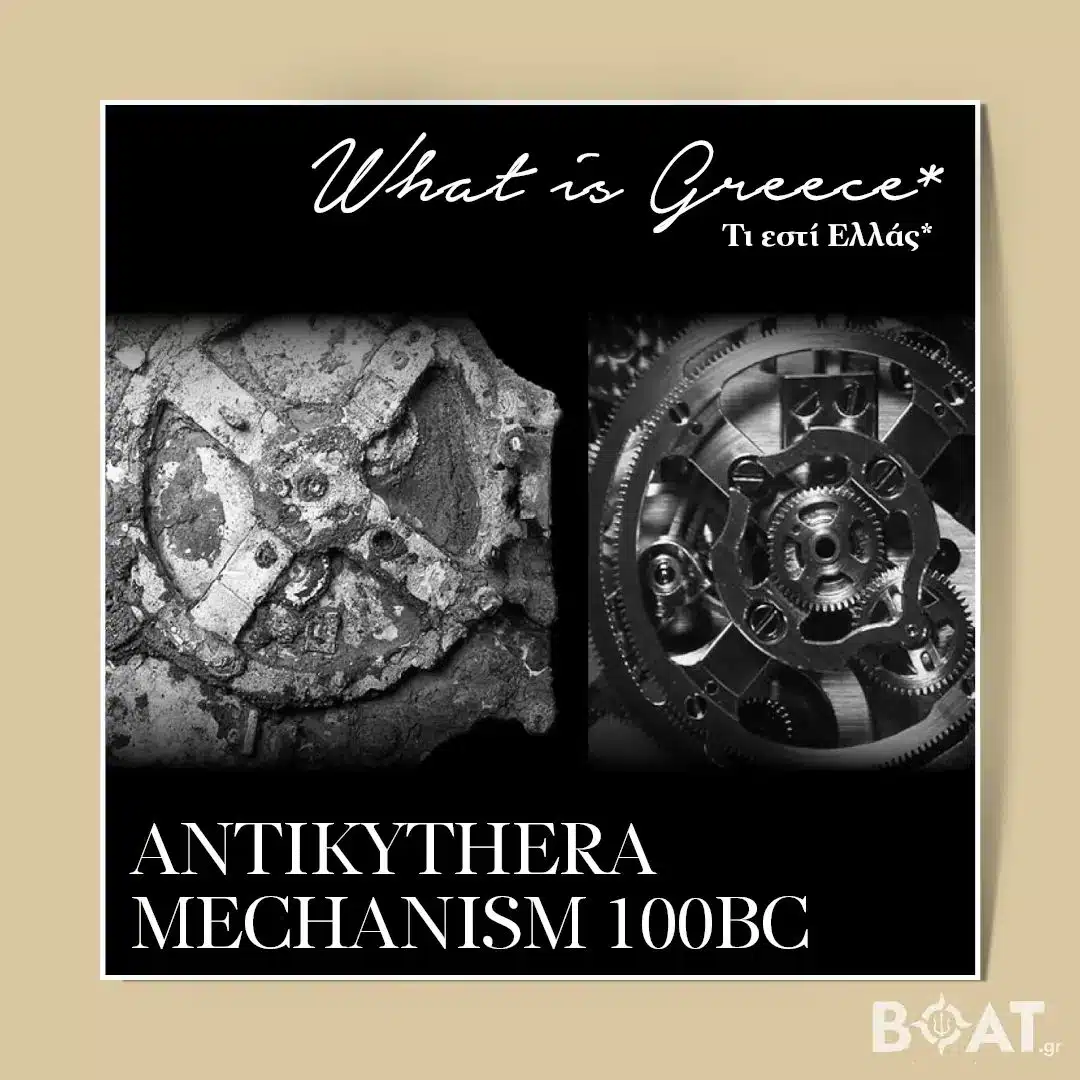The Antikythera Mechanism
Antikythera Mechanism
The Antikythera Mechanism, known worldwide as the world’s first computer, is a Greek cultural treasure.
More than a hundred years ago, divers at the bottom of the sea near the Greek island of Antikythera, discovered this extraordinary mechanism that astonished the international community of experts on the ancient world.
The Antikythera mechanism was fabricated out of bronze sheet, and originally it would have been in a case about the size of a shoebox. The doors of the case and the faces of the mechanism are covered with Greek inscriptions, enough of which survive to indicate clearly much of the device’s astronomical, or calendrical, purpose.
It could also be used to track the four-year cycle of athletic games which was similar to an Olympiad, the cycle of the ancient Olympic Games.
For decades, scientific investigation failed to yield much light in the Antikythera Mechanism functions and relied more on imagination than the facts. However, research over the last half of the century has begun to reveal its secrets. The machine dates from around the end of the 2nd century B.C. and is the most sophisticated mechanism known from the ancient world. Indeed, no other geared mechanism of such complexity is known from the ancient world until medieval cathedral clocks were built a millennium later.
The Antikythera Mechanism is now understood to be dedicated to astronomical phenomena and operates as a complex mechanical “computer”, which tracks the cycles of the Solar System.
The remains of the Antikythera mechanism are now kept at the National Archaeological Museum, in Athens, along with a number of artistic reconstructions and replicas to demonstrate how it may have looked and worked.
Related posts
Categories
Search
Latest Posts














